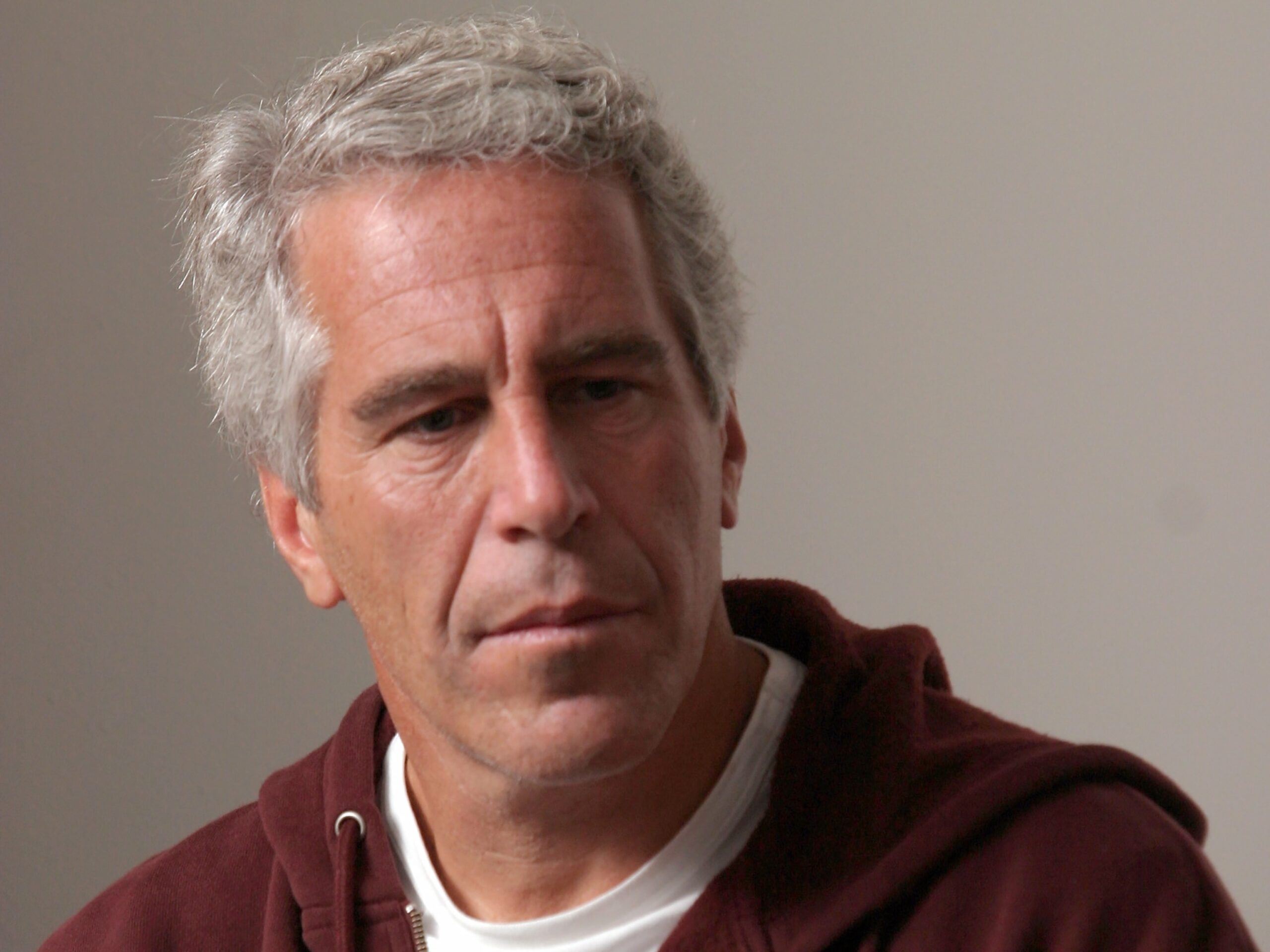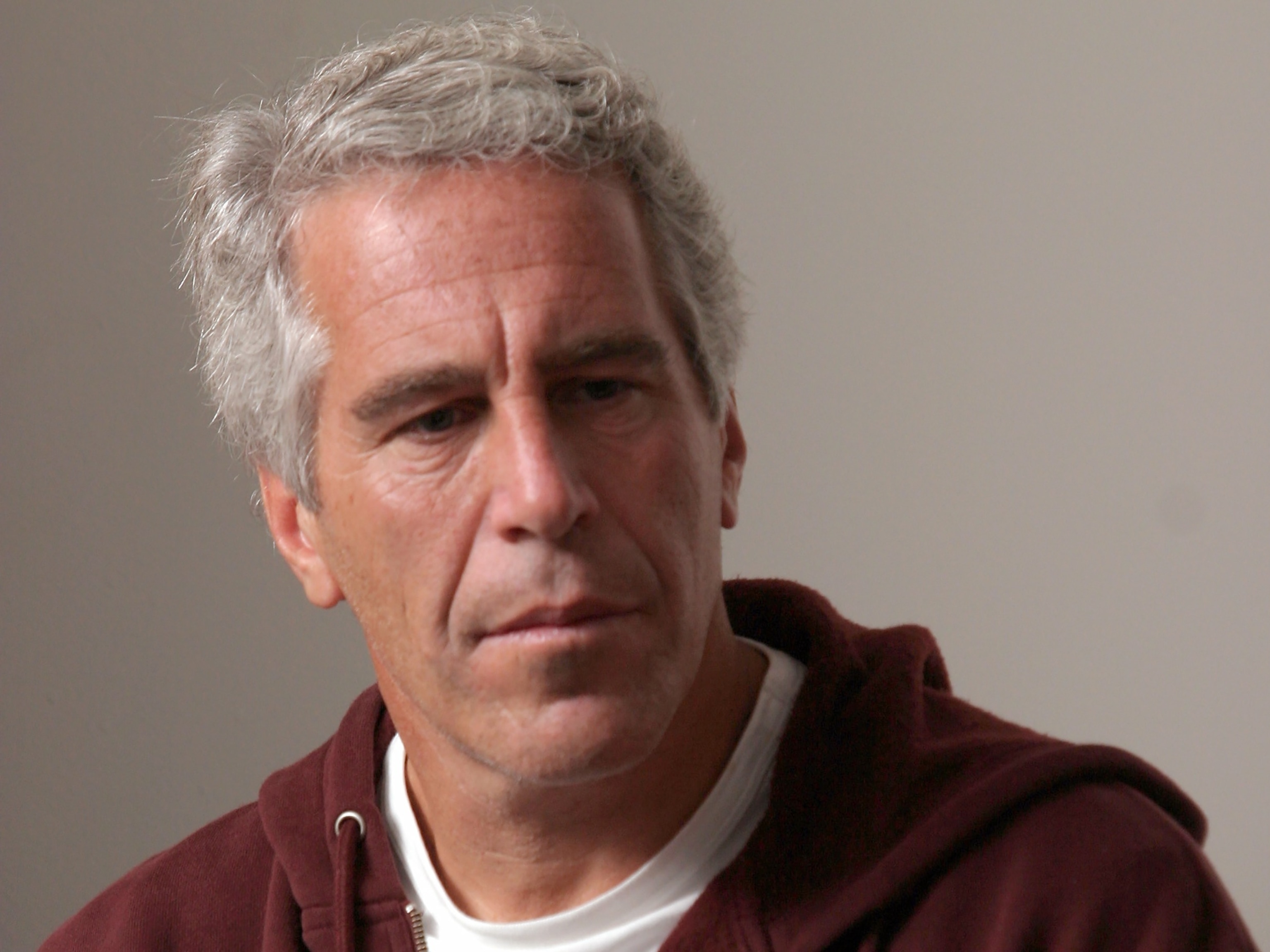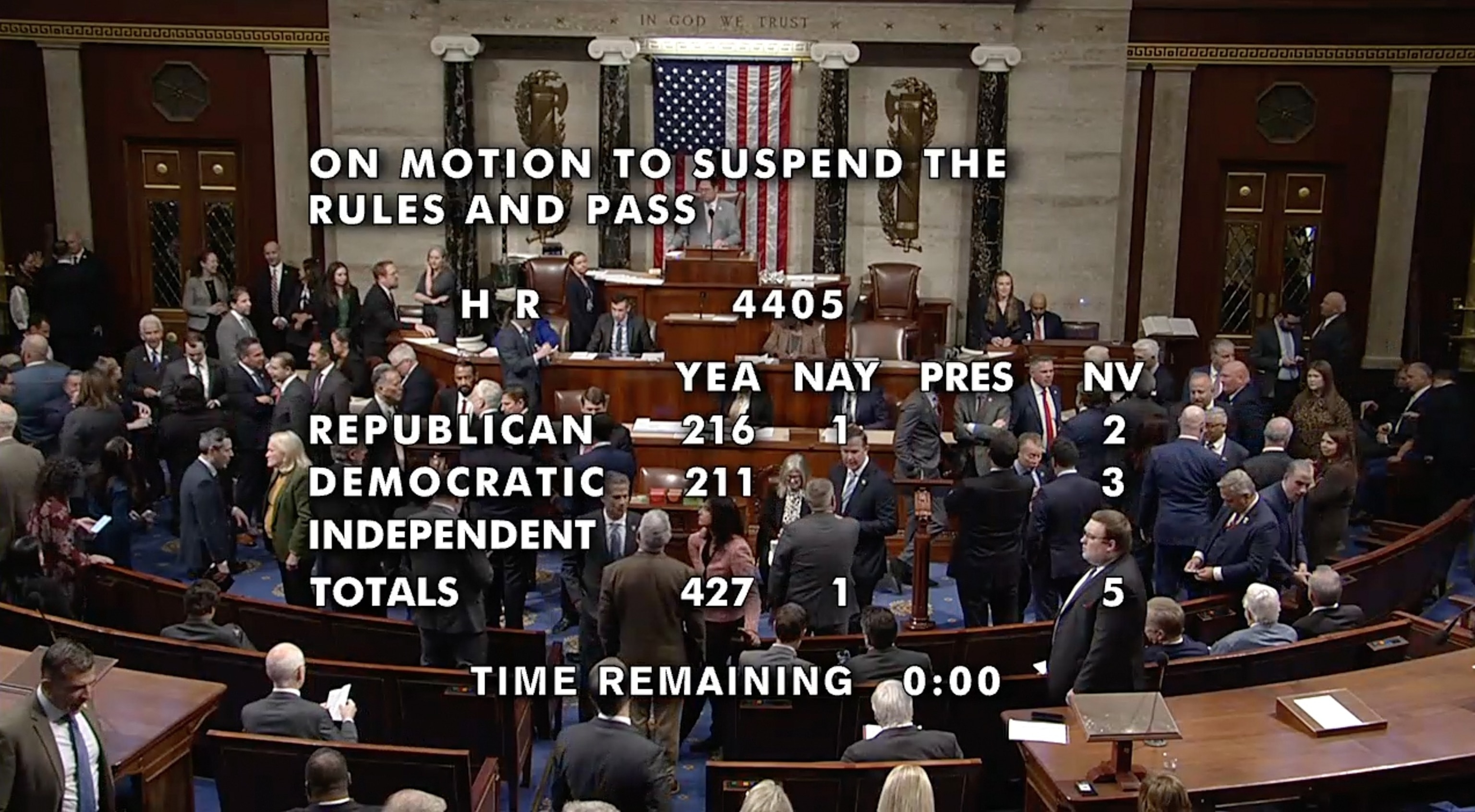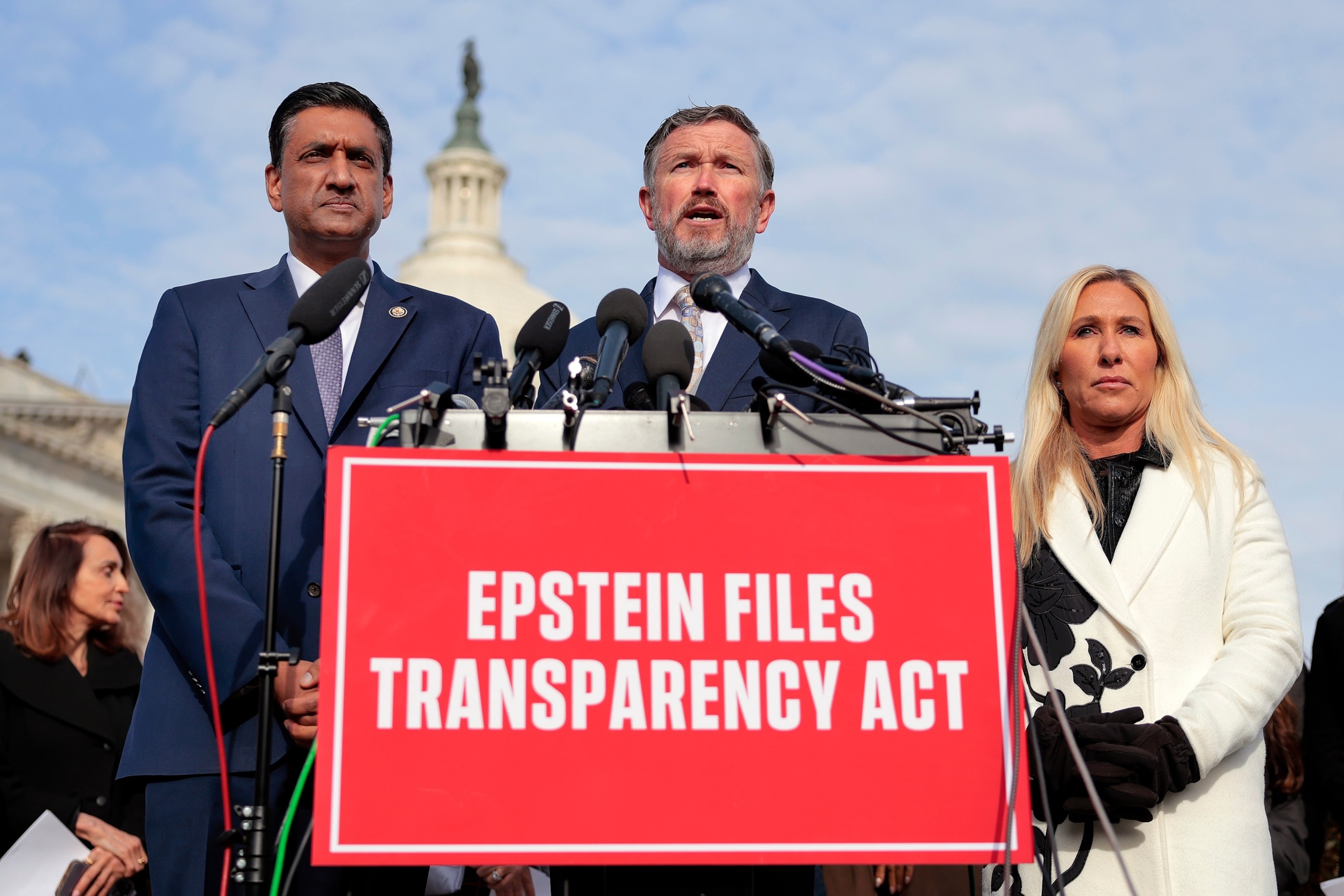Lawyer for Epstein’s alleged victims sends scathing letter over release of Justice Department documents

When the House Oversight Committee released a trove of files and emails from Epstein’s estate earlier this month, the convicted sex offender’s alleged victims responded with “widespread panic” after learning that the documents included dozens of unredacted victim names, a prominent Epstein lawyer said. the victims told a federal judge this week.
“I thought the government had promised to hide our names and identifying material. I don’t understand how this is happening again,” one alleged victim told attorney Bradley Edwards, according to one report. court appearance on wednesday.
“This type of neglect by the government toward a survivor is simply impossible to understand. It is simply impossible,” another alleged victim said, according to the document. “I don’t understand how this is possible.”
“I have not been able to function mentally and emotionally or sleep,” another alleged victim wrote, according to the court record.
As the Justice Department faces a Dec. 19 deadline to release hundreds of thousands of Epstein files, as required by the Epstein Files Transparency Act, Edwards is asking a federal judge to order the Justice Department to improve its review policy to prevent another disclosure of potentially sensitive information about alleged victims.

Jeffrey Epstein in Cambridge, Massachusetts, September 8, 2004.
Rick Friedman/Corbis via Getty Images
“These women are not political pawns. They are mothers, wives and daughters. These are women who were abused by Jeffrey Epstein, and in some cases by others, and whose rights have been violated in the past by the Government,” Edwards wrote in the filing before U.S. District Judge Richard Berman. “They are human beings who have the right to be treated with dignity and respect, and to feel safe and protected by our country, which has failed them time and time again.”
According to Edwards, the House Oversight post included the redacted names and personal information of dozens of victims, including women who were minors at the time of the abuse. One document alone contained 28 unredacted names of alleged victims, Edwards wrote. Based on the scope of the matter, Edwards said he believes the Justice Department “does not know the identities of all of Jeffrey Epstein’s victims and therefore cannot apply appropriate redaction to the files” or “intentionally fails to protect victims from public exposure.”
“While we will detail the various excuses that the Court will no doubt give, this is absolutely unacceptable and is a program that must be rectified before the release of any additional documents,” Edwards wrote.
Edwards further noted that the Justice Department publicly acknowledged in July that “Epstein harmed more than a thousand victims.” Based on that statement, Edwards asked on the record that the court confirm with the Justice Department that, before sending the files to the House Oversight Committee, he “undertook the onerous and necessary task of redacting the more than a thousand victims’ names in his possession.”
“In that pointed investigation, the court will learn that the Justice Department’s drafting process and its prosecutorial efforts are so irreconcilable with the number of victims it has publicly acknowledged that, when confronted with the discrepancy, its response will fall somewhere between incoherent mumbling, non sequitur, and outright misrepresentation,” Edwards wrote.

After months of anticipation, the House of Representatives voted 427 to 1 to approve a bill ordering the release of Justice Department files on the late sex offender Jeffrey Epstein in Washington on November 18, 2025.
House of Representatives
Edwards also alleged in the filing that victims have been unable to contact the Department of Justice to prevent the same thing from happening again.
“Despite numerous pleas for help, there is one singular entity that victims can’t seem to find a way to engage with and that has thus far been the primary violator of protecting victims’ identities: the Department of Justice,” he wrote.
With the Justice Department already in possession of hundreds of thousands of Epstein documents, Edwards also cast doubt on the Trump administration’s intention to seek separate material for the grand jury.
The Justice Department has asked judges in New York and Florida to authorize the release of grand jury transcripts and evidence from the Epstein and Maxwell prosecutions, information that is not normally made public. Prior to the passage of the Epstein Records Transparency Act, the Justice Department made similar requests that were denied by judges.
“[T]its incredibly small and largely irrelevant subset of grand jury materials [seems] “It serves nothing more than a perpetual distraction from the Department of Justice from providing the American people with full transparency regarding Jeffrey Epstein, while protecting the victims,” the document states.

Rep. Thomas Massie speaks alongside Rep. Ro Khanna and Rep. Marjorie Taylor Greene during a press conference on the Epstein Files Transparency Act in front of the U.S. Capitol on Nov. 18, 2025 in Washington.
Heather Diehl/Getty Images
Edwards asked Judge Berman to order the Justice Department to clarify what documents they plan to release and the process for redacting them. He also requested the possibility of consulting with the Department of Justice to ensure that a complete list of victims’ names is used in the redaction process.
Judge Berman responded to Wednesday’s letter by ordering the Justice Department to provide, by noon on Monday, December 1, a “detailed description” of the materials they intend to release and a “detailed description of the privacy process, including any redaction, that the Government seeks to employ to protect the rights of Epstein’s victims.”
in a separate presentation on WednesdayU.S. Attorney Jay Clayton said his office would “consult with attorneys for known victims regarding the names and terms of the holds and redactions.”
Clayton also clarified the breadth of documents the Justice Department is seeking to release, including notes from witness interviews, search warrant applications, financial and travel records, grand jury subpoena statements, school records, materials from Epstein’s estate and police records.







